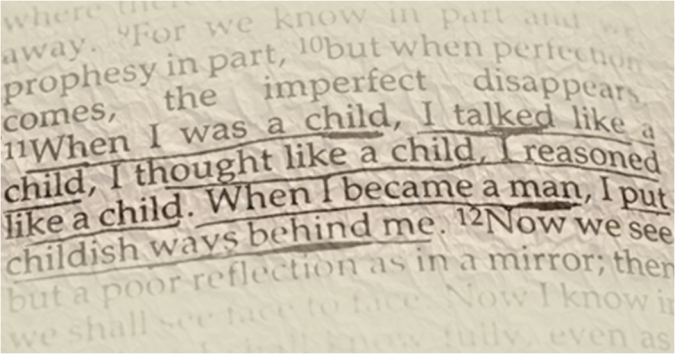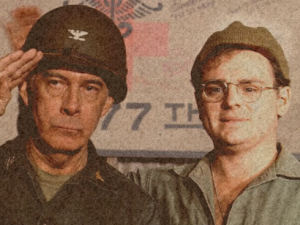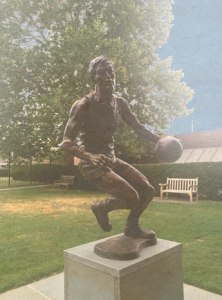A week ago, I watched the news in horror as a violent mob stormed the Capitol with the intent of…something. This group of self-identified patriots destroyed government property and threatened the lives of government workers because they had lost faith in that government. People who had just a few years earlier expressed outrage that a sportsman would kneel during the national anthem ripped down the American flag themselves. The police response to the violence was almost nonexistent compared to the militarized actions that had bullied peaceful protests just a few months earlier. Inside, lawmakers, who had for years ignored the insanity of kindergartners practicing active shooter drills, huddled in their safe spaces as their workspace became a bloody battleground. It was all confusing, and sad, and maddening, and terrible.
The aftermath has troubled me even more. So many people seem primarily concerned about being on the right side of history. So few of them pause to consider if they will be there alone. Within hours, people were once again being led to believe that healing could be found in a hashtag or salvation in a slogan. There is no room for nuanced conversations in a world of instant gratification. Even with 24 hours every day, few media outlets take time to explore complex stories in a way that is balanced or productive. People have grown to expect and receive a simple narrative that supports what they already believe, but few truths are simple. In Bird by Bird, Anne Lamott says this about truths. “You can’t tell them in a sentence or paragraph; the truth doesn’t come out in bumper stickers. There may be a flickering moment of insight in a one-liner, in a sound bite, but everyday meat-and-potato truth is beyond our ability to capture in a few words.”
Yet, those flickering moments can be catalysts to greater understanding. In Rhythm of War by Brandon Sanderson, Syl expresses a soul-deep hope I didn’t know I had until I saw the words. “If we choose, we can change. If we cannot change, then choice means nothing.” I must believe that my choices matter and that I can someday be better than I am today. Compassion demands that I extend that same hope for others. As atrocious as a person’s acts may be, I must believe that the person has agency and can choose to be better. Sure, many will not make that choice, but I will not be the one to decide that they are forever deplorable.
That is why this last week has been so exhausting for me. The deep sense of distrust in our fellow man has been growing steadily over the last decade, but it breached the levee last week. Based on incomplete truths, many of my acquaintances are rapidly discarding relationships that are difficult. Furthermore, they are constructing walls that will prevent new bonds from forming. There is great wisdom in healthy boundaries, but there is also a difference between preservation and comfort. Instead of seeking to understand and restore, many have taken the easier route and foolishly fallen into belittling their neighbor.
I believe that every single person is valuable, regardless of their beliefs or actions. No exceptions. My favorite verse in the Bible is illustrates this in a delightful way. It asks the question “If all the body were an ear, where would be the sense of smell?” I always picture a disembodied ear just lying on the floor, unable to do anything but hear. Ears are great, but the nose is also necessary. The rest of that section goes on to talk about eyes and hands and feet. The body needs all the parts to accomplish its goals. In the same way, a thriving society needs lots of diverse parts doing things that only they can do.
This does not mean that every belief or action is valuable. Criminals should expect to be punished as a justice demands that people be held accountable for their choices. All forms of bigotry are despicable and should be called out as unproductive. Fortunately, no human is wholly one-dimensional. When the feet begin to stink, should the nose demand that the feet be cut off? It is much better to persuade them to be washed, and maybe even massaged. I will acknowledge that sometimes the feet will try to take the rest of the body backwards. I still think it is better for the body to be whole, because one day, the feet might choose a different path.
We should all hope for that day.















